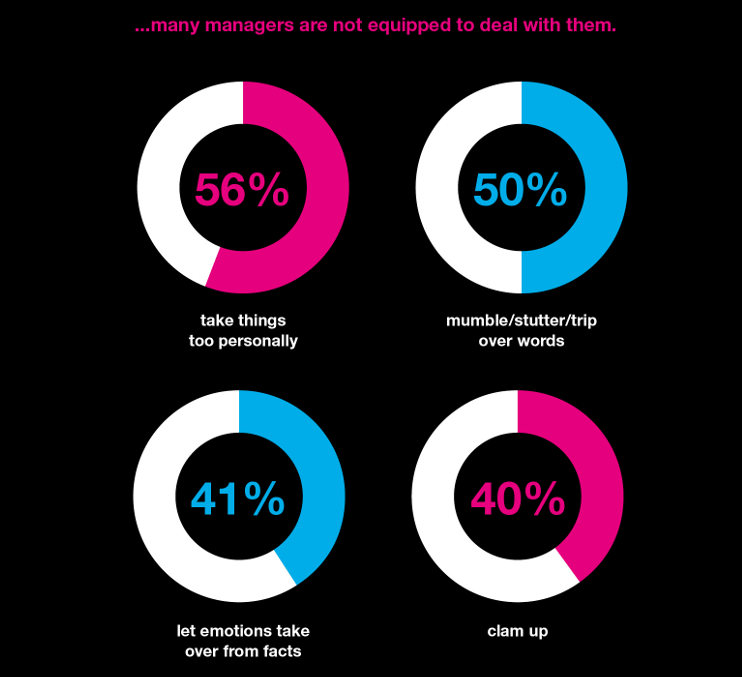Darling, I'd rather leave you than ask for a pay rise ...
Learning & Development 4th August 2015
The Chartered Management Institute has researched #difficultconversations and found that the average Briton would rather end a relationship than ask their boss for a pay rise! The CMI has created a Top Ten “hardest difficult conversations”, by percentage of managers who said they found it difficult. And at the top are conversations about:
- Pay
- Inappropriate behaviour
- Performance management
The conversation about ending someone’s employment is at number 10 – presumably because the outcome is unnegotiable.
More than half of workers say they have a difficult conversation at least once a month
So why are these conversations so hard? According to the CMI, it’s because…
Petra Wilton, Director of Strategy and External affairs at the CMI says these conversations are hard because managers do not have the support or training they need. “Our survey findings reveal that difficult conversations are really taking their toll on workers,” she said. “When it comes to our home life we often rely on friends and family to support us with tricky discussions. At work, with no advice or training, it can feel like tiptoeing through a minefield… It’s no wonder 61% of people told us they would like to learn how to manage workplace conversations with more confidence.”
Only 18% of us have had training on how to manage difficult conversations
Martin Leuw, chairman of Incube8it, believes middle managers are the worst affected by a shortage of training in handling difficult conversations, as austere times have led to an increase in the work they are expected to handle: “One of the worst affected areas is the squeezed middle, where people are pushing issues up to their managers just as senior managers are pushing them down. This puts a huge amount of pressure on the team leaders and middle managers and, quite often, they just haven’t had sufficient training to help them deal with these difficult and challenging conversations” he says.
Today, where you work, a lack conversation is adversely affecting your business
Katherine Graham, Managing Director of CMP Resolutions says, “Conversations happen every day, as managers manage by speaking. Yet they can make working lives a joy or a misery. Somewhere in your office, bad decisions are being made because people are withholding information out of anger; customers or service users are stuck in the middle of people’s turf wars; and essential staff are off with stress, or thinking longingly about moving on from a boss who routinely makes them feel under-valued. Talking, for all its simplicity, can feel too hard to do.”
Top tips for next time you’re having a difficult conversation
- Take 90 seconds to think through how you feel about the issues and the conversation – including your contribution to the difficulties
- Review your assumptions about the other person and the situation – and then ask the other person; stay open to their viewpoint and don’t get defensive.
- Conversations are collaborative and improvisational, not strategies or scripts. So stay awake and pay attention to their feelings – and to yours.
- Conversations take time; rushing now may mean problems down the line, or compliance with your requirements rather than commitment to them.
